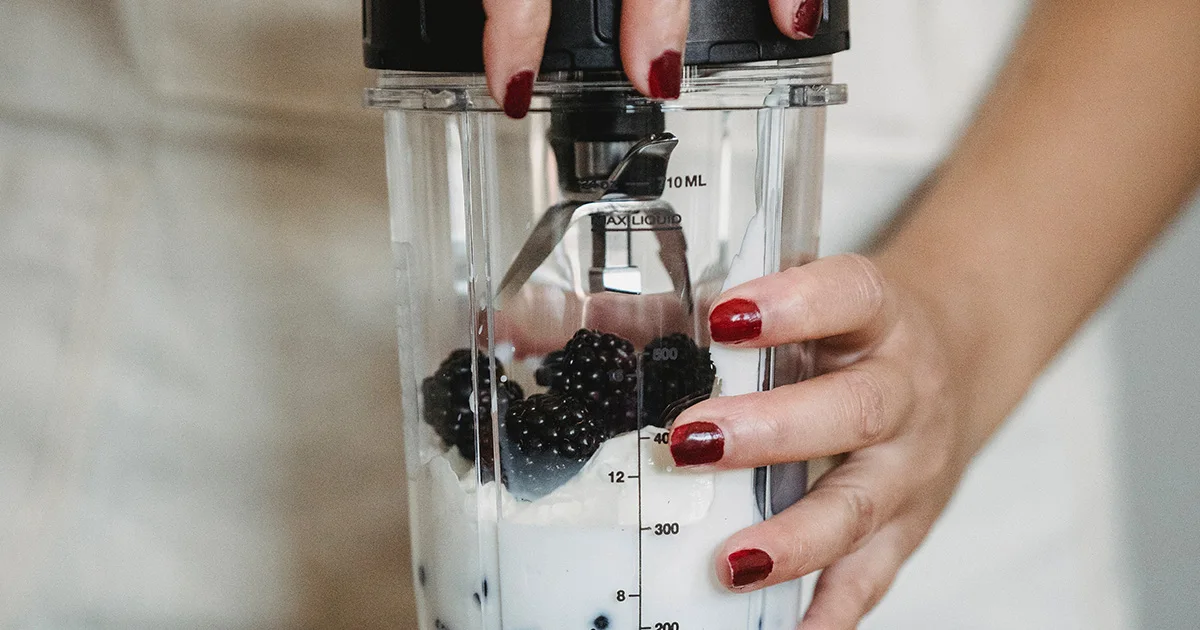Here's what we'll cover
Here's what we'll cover
Maintaining healthy blood sugar levels is an important part of managing your type 2 diabetes, which is why there are several types of medications on the market to help keep your blood sugar levels stable.
One of these medications is called dulaglutide or Trulicity.
What is Trulicity?
Trulicity (dulaglutide) is a prescription drug that is a member of a class of medications called glucagon-like peptide 1 (GLP-1) receptor agonists that help lower blood glucose for people with type 2 diabetes mellitus (Collins, 2021).
Trulicity works by encouraging your pancreas to make more insulin when your body senses that you’ve eaten glucose or carbohydrates. It also causes your body to release less glucagon—a hormone that raises your blood sugar—after you eat. (Eli Lilly, 2021; Collins, 2021).
Additionally, Trulicity slows the rate that food leaves your stomach after you eat (gastric emptying). This makes you feel fuller longer and can lead you to eat a little less over time (Eli Lilly, 2021; Collins, 2021).
Trulicity is only available with a prescription from a healthcare professional. Currently, it is only available as a brand-name drug.
Trulicity uses
The U.S. Food and Drug Administration (FDA) has approved Trulicity/dulaglutide to help adults with type 2 diabetes control their blood sugar levels. People should use it along with a healthy diet and exercise (Eli Lilly, 2021).
Trulicity is also approved to reduce the risk of major cardiovascular events in people with type 2 diabetes and risk factors for heart disease. These events include (Eli Lilly, 2021):
Death from a heart attack
Non-fatal heart attacks
Strokes
Sometimes healthcare providers prescribe medications to help other conditions besides the ones they are FDA approved for. These are called “off-label” uses. GLP-1 receptor agonists can reduce appetite, and people who take them may lose weight. For that reason, some doctors may prescribe these drugs for weight loss off-label.
Trulicity side effects
The most common side effects of Trulicity include (Eli Lilly, 2021):
Nausea
Diarrhea
Vomiting
Abdominal pain
Decreased appetite
Some other side effects are much less common but could be serious. Serious side effects include (Eli Lilly, 2021):
Thyroid tumors
Pancreatitis (inflammation of the pancreas that can be very painful)
Low blood sugar (if you take Trulicity with other medicines that lower blood sugar)
Allergic reactions
Kidney problems
Severe stomach problems
Eye problems (if you have a history of a condition called diabetic retinopathy)
Researchers don’t yet know if Trulicity is safe to use while pregnant or breastfeeding. If you are pregnant, planning to become pregnant, or are breastfeeding, make sure you tell your provider before taking Trulicity. They will help you decide if the potential risks outweigh the benefits for your situation (Eli Lilly, 2021).
Trulicity dosage
Trulicity is a clear, colorless liquid that is available in multiple doses (Eli Lilly, 2021):
0.75 mg/0.5 mL solution in a single-dose pen
1.5 mg/0.5 mL solution in a single-dose pen
3 mg/0.5 mL solution in a single-dose pen
4.5 mg/0.5 mL solution in a single-dose pen
The recommended starting dose of Trulicity is 0.75 mg, but your provider can increase your dose if you need better blood sugar control (Eli Lilly, 2021).
You use Trulicity once a week by injecting it under the skin (subcutaneous) of your upper arm, stomach, or thighs. You should rotate where you inject the medicine each week to avoid using one injection site too often. You can take Trulicity any time of the day. Unlike some other diabetes medications, it doesn’t matter if you take it with or without food (Eli Lilly, 2021).
If you also take insulin, you should administer your insulin and dulaglutide separately. Don’t mix them together. You can use the same body regions for both injections, but don’t inject them next to each other (Eli Lilly, 2021).
And what if you miss a dose? If there are at least 72 hours until your next dose, the drug's manufacturer advises administering Trulicity as soon as possible and then resume your normal weekly dosing schedule.
If, however, your next dose is within 48 hours, do not inject the missed dose and simply resume your injections at the next regularly scheduled time (Eli Lilly, 2021). If you’re unsure, reach out to your healthcare provider and ask how you should proceed.
It’s also important to read the storage instructions that come with your Trulicity pens. You should store them in the refrigerator. However, if you’re traveling, you can store Trulicity at room temperature for a total of 14 days (Eli Lilly, 2021).
Trulicity warnings
Trulicity carries a boxed warning from the FDA about the risk of causing thyroid cancer. In studies on rats, dulaglutide sometimes caused thyroid tumors. Researchers don’t yet know how much risk this presents for humans (Eli Lilly, 2021).
You shouldn’t take Trulicity if you are allergic to it or dulaglutide. Call your provider or go to the emergency room immediately if you think you are having an allergic reaction to Trulicity.
Additionally, you shouldn’t take Trulicity or any of the other medications in the GLP-1 class if you have a history of having medullary thyroid carcinoma (MTC) or if you or a family member have had a condition called Multiple Endocrine Neoplasia syndrome type 2 (MEN 2) (Eli Lilly, 2021).
It’s also important to note that Trulicity only treats type 2 diabetes, not type 1 diabetes (Eli Lilly, 2021).
Trulicity also hasn’t been well studied in people with a history of pancreatitis, people with severe gastrointestinal disease (such as gastroparesis), or people under the age of 18 (Eli Lilly, 2021).
If you fall into one of these groups, your provider might consider a different medication until more research shows that Trulicity is safe and effective for you (Eli Lilly, 2021).
Trulicity interactions
Trulicity doesn’t have many interactions with other medications, but there are some things you should be aware of when it comes to taking certain medications with Trulicity.
Oral medications
Trulicity slows down the speed at which food leaves your stomach. This means it also slows down the speed at which oral medications leave your stomach. Staying in your stomach longer can affect how your body absorbs the medicine. When you start Trulicity, make sure that you tell your healthcare provider about all other medications or supplements that you take. They may want to monitor or change some of the dosing (Eli Lilly, 2021).
Medications that lower your blood sugar
You take Trulicity to help lower your blood sugar. If you also take other medicines that lower your blood sugar, such as insulin injections or oral medications called sulfonylureas that make your pancreas secrete more insulin, your blood sugar might get too low. This is a condition called hypoglycemia, which can be dangerous (Eli Lilly, 2021; Collins, 2021).
To prevent this, your provider might reduce the doses of these other medications when you first start Trulicity or change doses. Be sure to monitor your blood sugars as directed by your provider (Eli Lilly, 2021).
You should also know the symptoms of low blood sugar, such as a fast heart rate, sweating, shaking, confusion, and hunger. If you experience any of these symptoms while taking Trulicity, follow the protocol for low blood sugar given to you by your provider and be sure to notify them. They may change the dosages of your insulin or other medicines.
DISCLAIMER
If you have any medical questions or concerns, please talk to your healthcare provider. The articles on Health Guide are underpinned by peer-reviewed research and information drawn from medical societies and governmental agencies. However, they are not a substitute for professional medical advice, diagnosis, or treatment.
Collins, L. & Costello, R. A. (2021). Glucagon-like Peptide-1 Receptor Agonists. [Updated Jun. 25, 2021]. In: StatPearls [Internet]. Retrieved Feb. 15, 2022 from https://pubmed.ncbi.nlm.nih.gov/31855395/
Eli Lilly and Company. (2021). TRULICITY- dulaglutide injection, solution . Retrieved Feb. 15, 2022 from https://uspl.lilly.com/trulicity/trulicity.html










